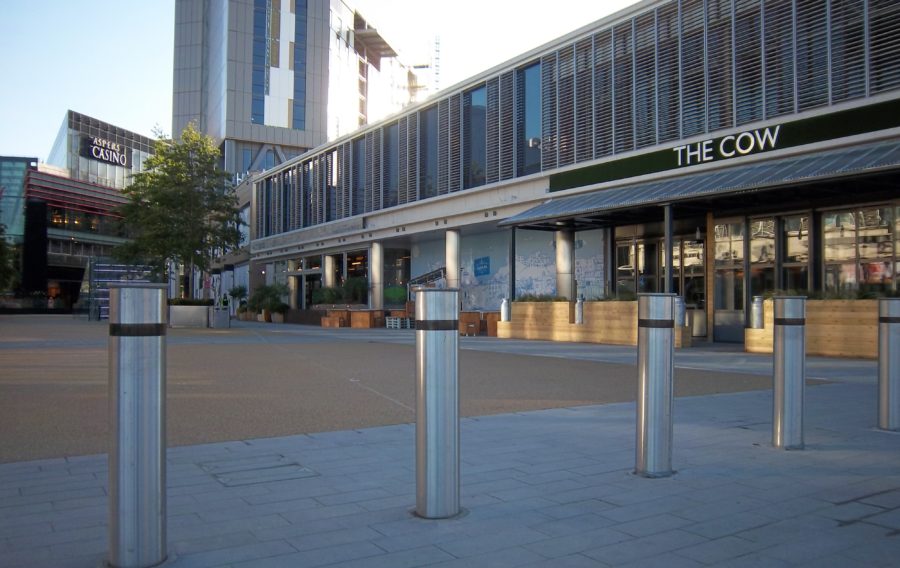
Carefully planned safety and security measures will be a crucial part of the successful redevelopment of our high streets and city centres as they seek to reinvent themselves after Covid, according to security company ATG Access.
With the Housing, Communities and Local Government Committee informed at a January meeting that the lockdown-induced shift towards online retail will likely be permanent, the high street must move its emphasis away from retail and instead become more leisure and experience-focused with the help of new pedestrianised zones.
Gavin Hepburn, Managing Director at ATG Access commented: “The pandemic has undoubtedly accelerated changes that were already happening in consumer behaviour. This presents an exciting opportunity to have another look at our urban landscapes and consider how they might be transformed to better serve the needs and wants of the public.
“As we saw last summer, pedestrianisation is a great way to create new multifunctional spaces for people to gather and socialise. These spaces can be used to provide a much needed boost to hospitality businesses, or host fun community events, which will be critical when it comes to drawing people back to the high street as things start to return to normal.
“When creating these new spaces, choosing the right physical security measures, such as bollards and impact-tested street furniture, will be crucial in order to ensure the public can use and enjoy them with confidence. While this may seem obvious, according to our recent research many architects, specifiers and urban planners feel like not enough is invested in security on the projects they work on.”
The report by ATG Access revealed that 60% of urban design professionals have concerns about the level of investment in security measures, while 47% feel that their nearest city isn’t safe.
When asked about the barriers to appropriate implementation, the majority (67%) cited insufficient funding, 55% identified a reluctance from local authorities to invest, and 32% had experienced a local unwillingness to have the look of a space spoiled by “obtrusive security measures”.
Exploring the potential solutions to these barriers, 53% of those surveyed suggested working in partnership with local authorities and suppliers right from the beginning of a project to determine the most appropriate security measures, while 36% were keen to make use of impact-tested street furniture to counteract any aesthetic issues.
Gavin continued: “We all want to see cities and towns bustling with life again once the pandemic comes to an end. Creating new safe, public spaces will be the key to achieving this, so urban design professionals, local authorities and security suppliers must all work together to bring this new vision to life and ensure a bright future for our high streets.”
If you would like to join our community and read more articles like this then please click here







